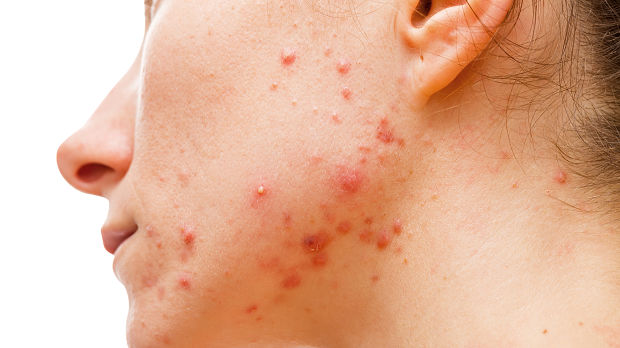
Is a New Form of Topical Minocycline Effective in Treating Acne?
Oral antibiotics are a powerful and effective treatment for acne, but come with potentially serious side effects that may have long-term implications. Therefore, clinicians often seek topical solutions to treat acne as the first-line option. One of the causes of acne is the proliferation of Propionibacterium acnes (P. acnes) bacteria on the skin. Topical solutions that include clindamycin have been shown to be effective in reducing bacteria colonies. Oral minocycline is commonly prescribed to treat various bacterial infections because it is active against a number of gram-positive and gram-negative organisms, including P. acnes. However, side effects associated with oral minocycline include hepatotoxicity; metabolic effects; photosensitivity; discoloration of the teeth, skin, and mucous membranes; lupus-like syndrome; drug hypersensitivity syndrome; and central nervous system (CNS) effects such as vertigo and dizziness.
There is currently no commercially available topical dosage form of minocycline, but a recent study reported on the effectiveness of BPX-01, a newly developed topical minocycline hydrochloride (HCl) gel. The study showed that compared to controls, BPX-01 reduced acne colonization by as much as 90% and the number of inflammatory lesions by close to 60%. In addition, very few adverse effects were reported – there were no reports of photosensitivity, post inflammatory hyperpigmentation, or skin discoloration. Also, because there is virtually no detectable plasma minocycline level with BPX-01 treatment, it is not anticipated that systemic side effects related to minocycline would occur.
The authors conclude that BPX-01 topical minocycline gel represents a novel treatment that is well-tolerated and has a high rate of subject satisfaction. They state that this treatment might provide an effective new option with a favorable safety profile, a potential for high patient adherence, and avoidance of AEs associated with oral minocycline use.
Byline: Martha L. Sikes, MS, RPh, PA-C
Posted: January 17, 2019
Source: NCBI
Adapted from the original article.
[Image: Ocskay Bence / Shutterstock.com]







